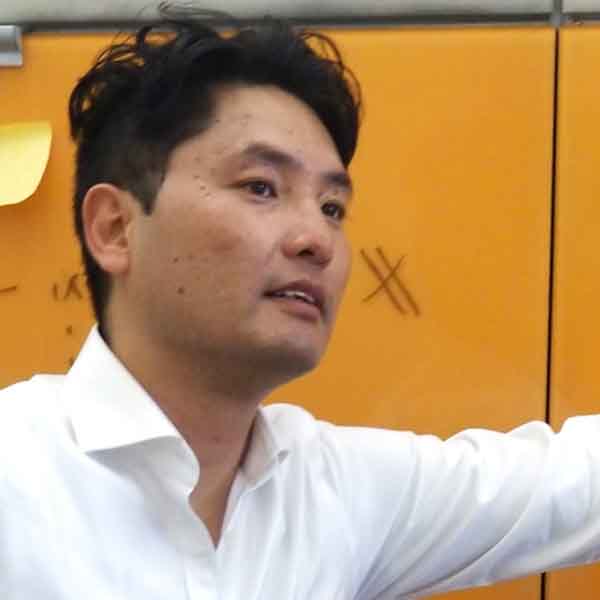Game Theory
Homework Help & Tutoring
We offer an array of different online Game Theory tutors, all of whom are advanced in their fields and highly qualified to instruct you.
Game Theory
Game theory is a multi-disciplinary approach to the study of human behavior, used in such fields as mathematics, economics, and the social sciences. By "games" we actually mean human interactions governed by opposing strategies of the people involved.
As an example, in a patent system, the first research lab to invent a device gets the patent. Game theorists will apply the principles of game theory to find out how many research labs need to be involved to establish a Nash equilibrium, and compare that to the most efficient number of labs. Everything else follows from there.
A good course in non-cooperative game theory will most likely deal with these areas:
- Games in strategic form and Nash equilibrium
- Iterated strict dominance, rationalizability, and correlated equilibrium
- Extensive-form games
- Applications of multi-stage games with observed actions
- Repeated games
- Bayesian games and Bayesian equilibrium
- Bayesian games and mechanical design
- Equilibrium refinements
- Reputation effects
- Sequential bargaining with incomplete information
- Payoff-relevant strategies and Markov equilibrium
- Common knowledge and games
The International Journal of Game Theory is a good place to stay up to date in this field, and game theory tutorials are not hard to find.
A Brief History of Game Theory
The work of Von Neumann and Morgenstern (1944) marked an official start of game theory. Then came the second milestone contribution of John Nash (1951), which basically becomes chapter 1 of any modern game theory textbook. In the 1950s, in the intense atmosphere of war, there were many brilliant breakthroughs in fundamental fields such as computer science, mathematics and physics that set the foundation and landmarks for today's standard. Some said it was a time when “giants roamed the Earth”.
Game theory considers interaction among individuals in a narrow context. A context is narrow when the action of one player can have influence over the course of the whole game, hence each player has to take into account the reasoning of the other in order to make their action. There are two parallel lines in game theory: cooperative game theory and non-cooperative game theory. The cooperative strand studies coalition and contract formation from a normative point of view. It answers questions such as: What should be the society we would like to enter? What kind of contract or coalition could we form? The non-cooperative approach (which becomes more prominent in modern game theory) starts from the individual's perspective. Starting from building blocks of decision theory such as preference and utility function, it investigates positive questions such as: What would really happen after we have all agreed to an agreement? Would we still comply with it? The rationale is that we would comply to an agreement if and only if it aligns with our own interest. In this non-cooperative realm, a Nash equilibrium is defined as a profile of players' actions that maximize the utility of everyone given their correct expectation on everyone else's behavior. There are two parts of this definition. First, the player maximizes his own expected utility based on some belief (or prediction) over the other's behavior. Second, that expectation turns out to be correct. In this way, a Nash equilibrium becomes a situation that is self-enforced (i.e. no one wants to deviate from her chosen action).
This is a broad concept because any self-fulfilling prophecy therefore can be a Nash equilibrium, making the number of Nash equilibria to be more than one. And some people may suggest that some Nash equilibria seem to be better (more rational or more equitable) than others; hence there have been many attempts to refine the Nash equilibrium concept which results in a vast amount of literature on refinements in the 1980s. Even now the problem of equilibrium selection remains open for active contribution. Game theory has had extensive applications in the study of cooperation and competition in society. Different situations can be captured in different hypothetical situation such as the Prisoner's Dilemma for the cooperative decision, the bargaining game for negotiating decision, and the trust game for investment decision. Further information on classical game theory can be found at Standford.edu.
References:
Von Neumann, J.; Morgenstern, O. 1944. Princeton University Press. Theory of games and economic behavior. Princeton, NJ, US.
Nash, Jr. J. F., 1951. Noncooperative games. Annals Math., 54, 289-95.
To fulfill our tutoring mission of online education, our college homework help and online tutoring centers are standing by 24/7, ready to assist college students who need homework help with all aspects of game theory. Our mathematics tutors can help with all your projects, large or small, and we challenge you to find better online game theory tutoring anywhere.
College Game Theory Homework Help
Since we have tutors in all Game Theory related topics, we can provide a range of different services. Our online Game Theory tutors will:
- Provide specific insight for homework assignments.
- Review broad conceptual ideas and chapters.
- Simplify complex topics into digestible pieces of information.
- Answer any Game Theory related questions.
- Tailor instruction to fit your style of learning.
With these capabilities, our college Game Theory tutors will give you the tools you need to gain a comprehensive knowledge of Game Theory you can use in future courses.
24HourAnswers Online Game Theory Tutors
Our tutors are just as dedicated to your success in class as you are, so they are available around the clock to assist you with questions, homework, exam preparation and any Game Theory related assignments you need extra help completing.
In addition to gaining access to highly qualified tutors, you'll also strengthen your confidence level in the classroom when you work with us. This newfound confidence will allow you to apply your Game Theory knowledge in future courses and keep your education progressing smoothly.
Because our college Game Theory tutors are fully remote, seeking their help is easy. Rather than spend valuable time trying to find a local Game Theory tutor you can trust, just call on our tutors whenever you need them without any conflicting schedules getting in the way.






